
The Darrell McClain show
Independent media that won't reinforce tribalism. We have one Planet; nobody's leaving, so let’s reason together!! Darrell McClain is a Military veteran with an abnormal interest in politics, economics, religion, philosophy, science, and literature. He's the author of Faith and the Ballot: A Christian's Guide to Voting, Unity, and Witness in Divided Times. Darrell is a certified Counselor. He focuses primarily on relationships, grief, addiction, and PTSD. He was born and raised in Jacksonville, FL, and went to Edward H white High School, where he wrestled under Coach Jermy Smith and The Late Brian Gilbert. He was a team wrestling captain, District champion, and an NHSCA All-American in freestyle Wrestling. He received a wrestling scholarship from Waldorf University in Forest City, Iowa. After a short period, he decided he no longer wanted to cut weight, effectively ending his college wrestling journey. Darrell McClain is an Ordained Pastor under the Universal Life Church and remains in good standing, as well as a Minister with American Marriage Ministries. He's a Believer in The Doctrines of Grace, Also Known as Calvinism. He joined the United States Navy in 2008 and was A Master at Arms (military police officer). He was awarded several medals while on active duty, including an Expeditionary Combat Medal, a Global War on Terror Medal, a National Defense Medal, a Korean Defense Medal, and multiple Navy Achievement Medals. While in the Navy, he also served as the assistant wrestling coach at Robert E. Lee High School. He's a Black Belt in Brazilian Jiu-Jitsu under 6th-degree black belt Gustavo Machado. Darrell Trains At Gustavo Machado Norfolk under the 4th-degree black belt and Former Marine Professor Mark Sausser. He studied psychology at American Military University and criminal justice at ECPI University.
The Darrell McClain show
Who Gets Protected When No One Can Defend Themselves?
Use Left/Right to seek, Home/End to jump to start or end. Hold shift to jump forward or backward.
Some rules sound perfect until they meet real life. Zero tolerance promises order and fairness at work, but what happens when a punch lands, security is minutes away, and your kids still need you home tonight? We pull this apart with a Brazilian Jiu-Jitsu black belt and military veteran whose day job straddles IT, investigations, and loss prevention. Together we stress-test the policy from both sides: the case for clear rules that protect non-fighters, and the case for proportionate self-defense when the system falls short.
We get concrete. How do cameras, access controls, and documented complaints change the story? When does “behind the desk” become a legal barricade that justifies force? What does a shield of professionalism look like—step-by-step—in the moments before a confrontation turns physical? You’ll hear field-tested tactics that favor control over strikes, reduce injury, and buy time until help arrives. We also explore a provocative idea—mutual combat—as a thought experiment for designing conflict-resolution frameworks that don’t automatically destroy two careers.
This conversation isn’t about glorifying violence; it’s about aligning safety policy with human reality. We ask the hard questions: Who’s the aggressor when both claim defense? How should companies weigh proportionality on camera? Who’s liable if a defender causes injury after following procedure? And why do schools and workplaces keep punishing defenders, training people to accept harm for compliance?
If you care about workplace safety, HR policy, risk management, or just getting home in one piece, this one matters. Listen, share with your team, and tell us where you stand. Subscribe, leave a review, and join the discussion—should zero tolerance make room for documented, proportionate self-defense?
Ladies and gentlemen, welcome to our first formal debate. So gentlemen, ladies, esteemed guests, respected colleagues, tonight we have the privilege of hearing from a man whose journey crosses continents, disciplines, and communities. A man shaped by service, shared by experience, and committed to excellence in every arena he has already stepped into. He is a black belt under the Gustavo Machado lineage, having earned his black belt in 2002, back when the sport was smaller, rougher, and demanded the kind of grit you can't fake. For more than two decades, he has been a pillar in the Brazilian Jiu-Jitsu community, known not only for his technical mastery, but for the way he passes that mastery on. Today he serves as a kids BHA coach at Top Game Academy, where he teaches discipline, confidence, and resilience to the next generation of athletes. In a world hungry for mentors, he shows up week after week. Before that chapter, he served our country with honor in the United States Air Force. The habits he forged there, precision, accountability, duty before ego, still anchor his work and his worldview today. Professionally, he brings that same mix of toughness and technical insight into the world of information technology. His career has taken him from a structured demands of military communications to the complex systems of the private sector. He currently works in it as an IT at Amazon, where he not only supports mission critical operations, but also partners with loss prevention and human resources by pulling and analyzing camera footage related to workplace violence policy issues and internal investigations in a time when safety and clarity and accurate information matter more than ever. He is a steady, reliable bridge between chaos and truth. He is also no stranger to the world of media and conversation because he himself is a former podcast co-host. He developed a reputation for blending insight and humor and sharp analysis anchored at all times by curiosity and a genuine desire to understand the world as it is, not as merely as people wish it to be. And as many of his friends will tell you, he is also a certified foodie, the kind who understands the culture, community, and conversations often begin around a shared meal. He stands before us not as a specialist in one narrow lane, but as a well-rounded practitioner of many disciplines, martial, intellectual, technical, and civic. In an age where expertise is often sullied, he brings a rare combination the fighter's instincts, the veteran's discipline, the technician's precision, the mentor's heart, and the communicator's awareness. It is my honor to welcome to the stage this Jiu-Jitsu Gustavo Machado Blackbelt. Joshua Johnson.
SPEAKER_02:Okay, so we're talking about today zero tolerance in the workplace. Primarily the attribute I want to go over is zero violence in the workplace with self-defense or self-defense issues, right? My current employee, uh Amazon, Amazon.com, OFLUS, whatever you want to call it, that you can climb it, right? We have a huge zero tolerance policy when it comes to self-defense or fighting in general. Generally, with most self-defense or zero tolerance policies, it's whoever starts it, whoever's engaged it, are generally the ones fired from the job, right? And we live in a society of things are what they think, right? Um, my personal preference on being uh martial artists like long time, uh choose your black button and sell much. I I think there's sometimes where that room has to change, right? Um one of the promise example I can I can kick off that from my personal experience was when I was in the Air Force, right? Um 2001 to 2008. Uh the bunch of the old timers that were always talking about, you know, we'd go back behind the has or the um, I forget what we call it, um, the uh something in chess room, right? But I'll come up with the name of that later. Um, wall-to-wall counseling room, right? And so there's an issue between two guys, they would go there and they have they handle the issues out like men or your women or whatever, but there's no harm no fell, right? Um, but even in some jobs in the security sector, there's some jobs like uh where manly men or women women, they work and then those types of things happen. They they they do the business, they shake hands, they get back to work, right? Um in my company, we're not allowed to have that luxury in a sense, right? So let's say me, you don't know we got into it, more than likely whether I started or you started, we're both gone. We're both out back, right? So the problem we have with this is if I know, if you know I have an issue with you and I don't like you, and I I want to jeopardize your safety and your livelihood, I I don't I don't care about the consequences. I know I'm getting fired. You can't do anything about it, and you're gonna get fired too because we we've engaged, right? We've we've we've we've engaged, you try de-escalating, you try doing all those things, but because I hit you, you're in the fight now. We're both getting fired, right? Um and I've talked about this with uh a couple of prevention specialists at my job, and I've told them my background, and I've told them some things about me. And they said, even then, it's like, man, you know, it depends how it happens, depends on not only us what HR says. I'm like, well, I I don't think that's a good enough answer for me, right? Because if if I am working doing my job and I get caught up in a mix and security is two, three minutes out, I have to do something, right? I have I have to be able to fit myself in a station or status to protect not only myself and my family when I get on because I'm not working for myself. You know, I have my wife and I have my son, you know, to take care of at the end of the day. So I I I think the concept of zero tolerance in a nutshell is it's it's very one-sided, right? It's it's not meant to protect employees or the or the person, the victim of the altercation. It's primarily there to protect the company. Okay. Um another issue you're gonna see is this. Well, we'll kind of go back, we'll I'll dig more into this. Is well, what happens if I don't defend myself, right? I don't defend myself, and and people know that I'm a martial artist or or I'm uh I'm a boxer, or I have some type of athletic background, right? So then you get this stigmatism that you look at you're not as good as what you say you are, what you were, what you're capable of doing, right? Um we we know we we talk a big game, we're very bravado in some instances, but a lot of people that one person and they want to try to press the button to see what what you're really about in in life and your your aspect, right? And that's always gonna be their work or or outside industry. It's always there, right? Um but with that, it's it's how do you mitigate this damage, right, of losing your job? Well, I I think um some jobs need to actually allow that, right? So I mean, like you said, you know, I mean you got into it at work or whatever, and I'm able to defend myself as long as I'm not causing a lot of damage to you, which which that's what we're doing in Jiu-Jitsu, right? We're not we're not throwing full-on punches. I don't want to punch you. That's just gonna hurt my head. I'd rather take you down and control you there. But hindsight 2020 is we're we're gonna full wall on flight, full fledged on flight, right? And in real life, you know, we can't wait sometimes 20, 30 seconds for help to arrive, right? Sometimes we have to be our own first respond, our own first line of defense. And and some jobs they don't see it that way. They're only caring about the job of protecting the jobs bottom down the lineup. And my I'm pretty sure my job, uh, a bunch of other corporate American jobs feel that way too. Um, unless you're one of these who feels like military, law enforcement, or where there's a lot of like pro-wrestling or anything like that, because I understand you're a pro-wrestling fan. Um those type of areas allow that or allow men and women to you don't like it, go in there and take care of it, right? And even at my job now, like sometimes I get to travel for work. Um, I go to one of the corporate sites uh up in Nova sometimes, and those guys have a full home fledged Jiu Jitsu training center at their site. And when I understand there was a couple guys that had an issue, they worked in the same apartment, they let them take care of the other. Is that the norm? Am I a company I work with? No, it's not the norm. But it's something that's rare that happens, which I think that should be looked into going forward. Um but it it does leave a if that doesn't happen, it leaves a very negative impact on one, the employee, right? The management staff, and also leaves a very negative effect on the company. Because if you can't protect me, and I can only protect myself, right? And security can't get to me fast enough, there's a gang of people around, and I'm just taking all these hits. What am I supposed to do? Right? What am I gonna do after this fact? I have to shoot the company. You know, I have to shoot them for my medical expenses, I have to shoot them for all the expenses that I want to extinguish throughout the rest of my life. I have to make sure, at the end of the day, again, I'm not working for myself, I'm working for my wife and my kid, right? Um, and and and whoever else that I may know that maybe help me online, but immediate families who I have to think about first. Um more than 10 chances for altercation happens. There's been some previous bullets and previous engagement or word of mouth or the building I work in, a lot of times it's some guy talking to some girl, some girl talking to some guy, and one of them's married, right? At the end of the day, and they get in, they get in a fight about that, right? Um or worst case scenario, this is happening at one of the buildings. Somebody's uh somebody loses their life, which nobody wants to see that happen, right? That's happened in the last couple years. Um but again, sometimes I think the zero tolerance policy, it's a very, very bad stigma, especially if there's no choice for you to defend yourself, right? There's got to be some type of way to lay the political to fully look into because when I get to look at these videos and they ask my opinion, I'm like, you know, I'm looking at several things from a self-defense perspective. Or they're hands up, or are they trying to make space? Or are they looking away out, you know, or they're trying to get away. And if that doesn't happen, there's multiple people around them, they can't get away. And there's like they're putting a case they have to cover up and go forward and go to work. And a lot of companies don't want to hear that. They they feel that it's easier to replace you and that person than to keep you on board and pay you for protecting yourself. Right? They'd rather deal with a lawsuit because these high-powered lawyers versus average uh young man or young woman that that's out there on this role. But I know I I jumped around a bit. Um I know I probably still have some time. So I'm gonna reserve my time and and hand it back over to you so um you do can uh kind of rebate some of the things I said.
SPEAKER_00:Okay, so guys, just for the record, the structured formal debate thing is is basically flexible. Uh me and Josh know each other, so um the the we we utilize the mute buttons and whatnot when we do the debates, but like I said, it's flexible. The the biggest thing is it's going to be letting the other person speak. So um what I want people to actually know is uh I actually agree with everything uh that Josh said, but just for the sake of the debate structure, I'm purposely going to take the negative position, even though I actually fully agree and I'm on board with everything Josh said. So because um it's not my normal position, I'm I'm going to treat it as if um I'm arguing the devil's advocate here. So I have a statement that says why zero tolerance is correct. And it's basically once you allow a little violence, you invite a lot of violence. First point is that's why zero tolerance isn't just a cooperative buzzword. It's a policy that keeps the workplace safe, predictable, and fair for everybody, not just the strongest, the loudest, the quickest to throw a crunch. Uh zero tolerance protects the vulnerable. Not everyone in the workplace is a fighter. Not everyone grew up rough, not everyone knows how to handle physical conflict, and because of that, zero tolerance, it makes sure that they don't have to. Now, when the rule is nobody puts the hands on anybody, the janitor, the new hire, the quiet employee, the person with anxiety, the single mom working the night shift, all of them get the same protection as the toughest guy in the building. That is justice. Point two. Zero tolerance prevents as a spiral. Everybody says they only defended themselves. But once fists start flying, nobody remembers who started anything. HR doesn't know, witnesses don't want to know anything, cameras were broken, our check cameras don't show intent. One shove becomes two. Two became a choke, a choke became a concussion, and now everyone is fired, someone is injured, everyone needs a lawyer, and everybody doesn't want to be involved. So zero tolerance stops the chain reaction before it actually starts. Point three. Zero tolerance removes subjectivity. Without it, every person becomes their own judge, jury, and self-defense. He invaded my space, she looked aggressive, I thought he was gonna hit me. That's not policy, that's actually chaos with the timesheet. Zero tolerance draws a line and makes it clean and solid. If you use force, you broke a rule. Period. Now consistency is what keeps the workplace from turning into the battleground of competing stories over Bruce egos. Point four. Zero tolerance keeps responsibility where it belongs. It is not the employees' jobs to fight for their safety. It is a company's job to prevent situations where the employees feel they need to fight. Zero tolerance forces the leadership to act quickly, decisively, and with accountability. If someone is a reth is a threat, the company needs to know so they can remove the threat. No worker should have to risk their job, their family, or their life to survive a work shift. And the last point is number five. Zero tolerance reduces liability and protects everyone's livelihood. One fight can shudder a workplace, one violent incident can cost dozens of people uh their lives or their jobs, one lawsuit can bankrupt and destroy a whole building, a whole business affecting millions of people. So the zero tolerance policy is the only policy that courts actually respect. It's the only one that HR can enforce that treats everyone the same. It's the only one that everybody universally can understand. So, in short, zero tolerance isn't anti-self-defense, it's just pro-order, pro-safety, pro-clarity, and pro-humanity. It ensures every worker strong, weak, new, seasoned, old, hothead, calm. We all operate under the same rules, we all get the same protection, so there's no confusion, no escalation, no expectations. That is why zero tolerance policy should stay as a current policy. What say you?
SPEAKER_03:So listening to all your points.
SPEAKER_02:Um I again, I would I understand them. I do agree with them, yes. But if we're looking at this from the livelihood of a person, right? Um we've seen street fights, uh, we've seen encounters. Um yes, we we want to say, okay, um we want we want to protect our protect our best employees, we want to protect everybody, we want to protect the working man and woman. That's very uh political and politician speed, right? That's what a politician and and somebody who's looking to move up the chain of command would say, right? With the hits following and thumbs up like they're, you know, like this, right? That's what they would do. But in nationality, so how would you deal with this, right? There's there's no there's no no there's no there's no we we with policies, policies are only enforced when it matters to the people in charge, right? So, uh example, um when I first started Amazon, there was a manager. Um he told another associate they had a verbal altercation of technically zero tolerance starts now, right? This manager told this associate, let's go outside and talk. Let's go outside and take care of this issue. This associate walked outside. The manager goes to HR. They both should have been terminated, but the associate did. Why? I don't know. Basically, because the manager, you know, quote unquote, did what he was supposed to do, following the rules, going to HR. And ideally, if zero tolerance is whether it's a threatening manner or threatening action or word, which could be considered as, you know, let's go outside and talk. Those are technically fighting words. So technically from that standpoint, they both should have been fired, right? But again, some policies are only they're there to protect certain members of the job force, right? We don't like to say that. Uh, we don't like to say this favorite chest on the job force, but that that is a huge, um, a huge one in some companies, right?
SPEAKER_01:Definitely agree.
SPEAKER_02:Um, next thing, far as far as lawsuits and liabilities, right? If if I get hit, right, let's say I get hit, as I mentioned earlier, I get hit, I can't defend myself. I take I get hit two, three, four times, boom. My eyeball, my head hits concrete, right? And I get cussed, right? Sure, that guy's getting fired. Right, he's getting fired. The companies will be like, well, you're getting fired too, because even though you didn't defend yourself, because you're technically in a fight, you're you're getting fired too, right? So the company is still going to get sued. No matter how much they try to get you a nice little, and we're gonna give you 250k, 75k, whatever they're gonna offer you. There's still going to be a lawsuit, both civilly and legally, because of one, you aren't there to protect me, right? As you stated, the job of the company's there to protect employees, right? You weren't there to protect me when this guy was uh squaring up with me, and I probably more than likely try to go to HR about this issue, about this version to my manager about this issue. So there's multiple people that have known about an issue. You can feel president there when something rowdy is about to happen, right? You can feel this inclination happening. But once it happens and I defend myself, why am I being taunted, right? Because I I know if I did the right thing and I had to lose my job. You you you as a company should know what's gonna happen. I'm going to either fill this job loss, you're probably I'm probably not gonna get unemployment because I broke work policy that you're only going to enforce it because it saves the benefit of the job and the company itself. So now we have to do legal ramification. Actually, now I have to hire a lawyer and I have to lawsuit. It shouldn't be that way. Right? It shouldn't be this way where that's the only leg that you as an employee have to do standards. You can hey, take it, take a merciless beating and help comes there and survives you, and and I oh I have to use your footage later, man. It's she's well stuck. Um, where somebody's getting beat for no reason, right? Because they care about their job so much, they they don't want to hit back. They can't run away. They're they're putting an instance where there's somebody behind them that's pushing them back into that, back into getting it, or they're closed off in the section, like a cage animal with somebody bigger or smaller than them, it's hitting them. And maybe that person's a meek, malmanner person, but they should be able to have enough confidence to know in themselves, I have to do something, not to protect the company. No, the company's not gonna care less about me because at the end of the day, the company's gonna replace me within a couple seconds, right? There'll be somebody else coming through that door, the ever-revolving door. So they're gonna replace me. Why should I take a beating for a company that's gonna replace me? I have to be able to do something to make sure I can go home at the end of the day. And in the same manner, I came in with all my digits working with my luscious low-cutting haircut or long hair, I need to be able to go home the same way. And if you're not a company that's gonna provide those stats for me, um what else do I have to do? You know, um, my job is big on safety. Right. Violence is we we don't want to we don't want to incur violence, we don't want all these things to happen. But again, policy is only meant to be followed when it is when it's suitable to the person enforcing the policy rule. That's that's on any policy. That's from that's from a safety perspective, that's from a HR perspective, and that's that's on um man, there's a couple others I can I can think of, but even my my current position, I think there's certain things that, oh yeah, don't worry about the policy. No, look, this is the policy. Yeah, policy doesn't exist. We need to do this, right? And those are times where like HR and who else is looking at a way to enforce this rule that that that on a normally you're not gonna enforce. You know. Uh I'm gonna hand it over to you uh so you can I get your thoughts and your opinions on that.
SPEAKER_00:Uh okay, guys. So remember when I what I said in the very beginning that I mean I actually agree with uh Josh's position, but for the sake of the debate, I'm taking the the the uh opposite. And because of that, I'm not gonna do a long uh following statement. I'm just going to make uh a quick little reply. That way we can have somewhat a back and forth conversation. Um so I would say for the most part, I I've I 100% agree with the fact that in society as it is run now, the fact that the rules are for the poor people and not for the rich people is not gonna change. It is something that we all know. The rules are for thee, but it is not for me. You see that in the courts, you see that with police, you see that with politicians, and you're gonna see it in the workplace. So people have to know that going in, that uh the system did not change because they got got a job. The the way the country functions is it's multinational corporations trying to monopolize everything. You have to know that the way they do that is with a body of lawyers. So I'm not telling anybody to be a victim. I'm not telling anybody to to die for the sake of twelve dollars an hour. What I'm telling you is to be intelligent enough to wrap yourself in the shield of professionalism where you know the policy, so when you do have to defend yourself, you have done everything possible to not be in that situation. So if you have a policy that says if a member came in and they were aggressive, you would you tell them, uh, would you please leave? You need to make sure you articulate that. If you have a policy that says after they refuse to leave, you give them a the card of the general manager. You have to make sure you've done that. If your policy says and then you get behind the desk, you do that. Now, those are the three things that you are required to do, period. Now, once the person becomes behind the desk, you now have what every company is going to have to back because you have the inherent right of self-defense. That does not end because you have a job. But I don't think a lot of people know that. I have told the person to leave, I have asked him to leave, I have given them the thing of my supervisor, I have re- re-re put myself behind a barricade, so I have retreated, they have pursued me, now I have to defend myself. I think what happens most of the time is people feel like they are disrespected and they reply. Just like, oh, there are legal ways to to to to take care of a situation. My scenario isn't necessarily focused on employees having conflicts with each other. To that, I would just say uh you can't you may have to open a can and grow up. Uh I don't like most people I work with. I'm not there to like them. I'm there to get a paycheck. Now, if the company provides me an opportunity to beat up my employees, by all means, I'm gonna be there all the time. But I need to people to understand I'm more focused on zero tolerance policies when it comes to an outsider coming in and what you have to do. And what I would say is the rule does not change. If a if an employee is harassing me, I'm going to snitch. Why? Because that is the shield of protection. I am making a documented record that I told the assistant manager that this person was harassing me. I tell the time and the date, I write the statement when it happened, and that is one. Why? Because I told this person, I make sure I told them, and that's if I ever have to get a lawyer, I can say, oh no, no, no, no. I told the assistant manager, I told the team lead, I told another co-worker, and so by the time this person I had exhausted all options, that that's how you legally protect yourself. But you take it one step further, you tell HR, and it's like, yeah, well, people may lose their jobs, well, tough. I don't I don't know to tell you. Uh and and that's why in the employee unemployee thing, the company needs to know. In the same way that if there's a member harassing a staff person, the the HR needs to know. You know what I mean? That's that's the way that somebody who's already dirt poor working for for minimum wage is doesn't have to take the the doesn't have to have the indignity of I'm gonna just get abused so that I my kids don't starve. You know. And I think a lot of the times what happens in these workplaces is people internalize it. They they're the junior person with the secret, and by the time it gets to management, it's gone on for years. And it's and it should have been nipped in the butt in the very first place. Now I'm gonna give you a real-world example. I can't uh uh name the company, but it did just happen this week. There was uh one of the employees came up to me and he said, Every time I go to clean, this person just harassed me. He he calls me stupid, he does this, da-da-da. I'm just trying to do my job. And so I told him, You did the right thing by coming up here, and I and I told him, I let I've been it to him, and I said, Now look, this happened to me. I said, There was somebody who uh was harassing uh an another coworker, and it caused a co-worker to quit. The person he literally got attacked with a knife. And so I said, you know, I would never uh let you get that close to me. I'm just gonna beat you up and apologize later. Now, that is because to me, that is a clear indication. A person came from the outside, they were intoxicated, I was behind the desk, they came behind the desk. Well, you just you you done fucked up A Right. And so, but he was so afraid that his job would be on the line and defend himself. So I say that needs to be articulated that you did everything right, even though you didn't know that you did everything right. You didn't pursue, you were behind the desk, the person came behind the desk. So this employee came to me, told me the situation. I said, Look, I said, Tell the manager. I said, I know the manager. I said the manager will have your back. While while I was telling him that, I was looking up the person that was doing the harassing. It just so happened to be that the manager came in. Now, the manager for this company is one of the Gustavo students. And so I told him to make sure that it was done. I said, Hey, walk him in. He needs to talk to you. That way I can make sure he didn't know. He needs to know. So then he told him what happened. I could see the manager was already upset and he was gonna deal with it. He said, He said, Before I deal with it, let me make sure I'm professional, let me go get my name tag. I had already had the guy pulled up. The gentleman walks up to complain to the manager about said employee, and then the manager says, Look, it seems like everything is heated. He says, So I'm going to, guess what? Give you my card. I'm the general manager. He says, Well, you uh just believing what he says, he says, I trust my employees, and he says, I would ask you to leave. And he says, And for the record, don't ever again call my employees stupid or you won't have a membership. And then the the way the guy kept escalating, he made himself look guilty. The general manager then stepped behind the desk, he was in the middle, the other guy was on the side, and I was to the far right. Now what he didn't know is I've been a police officer most of my life. That's why I was right there. He didn't know that the person in the middle does jujitsu. And he didn't know the person that he was calling stuck on stupid as a current E7 in the in the Marines, who was just working there because his wife is pregnant. He was gonna get all kinds of beat up, but we basically gave him every opportunity to to de-escalate the situation. So if he came behind the desk, we are protected by the shield of professionalism. The shield of professionalism is I did everything correct, and he just happened to walk walk right into a beating. And on camera, we did everything correct. I'm not telling anybody to to die for a job that'll replace you in two minutes, but I'm telling you, you knowing that a company is based on laws and built by litigators, you had to become a lawyer yourself. How do how can I protect myself? You know, just like you know, you'll you'll die tomorrow and from working hard and they'll replace you in ten minutes, but you they couldn't I thought they couldn't find anybody to hire. Everybody knows this is kind of a game. So it's just like the fact that you know the system is rigged and unfair and the rules are for the for the for the small people and not the big people, you have to know the policies to protect yourself. Sometimes from the company. You know, it shouldn't be uh employee has to get beat to death before they get security. You know what I mean? But you have to document it enough to where when they say, Well, how how long has this been going on? There's a long record of security doesn't get here on time, the police aren't here, this is the dangerous area, you know, and what say you Well, so let's let's address the first issue.
SPEAKER_02:So cameras, right? So uh the building's high service. Uh we have a ton of cameras. There are cameras everywhere, minus the restroom. We can't have legally we can't ever. So let's uh look at the first thing. The first thing we need to address is cameras, right? Security cameras, right? We have work at Amazon, we have all over the building, minus the restrooms and the lactation uh pods. The only suit is we don't have uh cameras at that moment, but there are cameras on the facing out of those, right? So if you're if you're looking at this far as a camera's perspective, Skynet is is always watching, right? Skynet's always looking at you, right? Uh if you're our age, you should know who or what Skynet is. Uh if you're a Terminator fan, right? Um Skynet's always watching. So from that perspective, one, we can we can we can see who started altercation first. Um so the altercation of saying we don't know who started it. No, no, no. You have camera footage. There's camera footage everywhere. So some you can see who walked up to who, plus the other guy, push the other guy or girl, and you can see how the phrase started from there. You can't say this person, you know, the person you actually try to fight, can't get like say, oh, that person stopped me in the face. Maybe that did happen. Maybe that happened somewhere else. But if it happened somewhere else, you give us a location, we can dig into the location finding it. So the the allocation of we don't know who started it, we we don't we don't have footage of it. No, no, no. There's footage everywhere, there's cameras everywhere in these in buildings and corporations, right? Um so the next thing for is having the the the shield um respect. So I'm gonna look at this from a from your perspective as if a outside person is coming in, right? So the way my company protects us, the employees there, right, is um unless you have a handy danny badge, I don't have my badge on me. Uh, if unless you have your your employee badge, you're not getting in through those doors, right? You're not getting through my building. We have the old like um rotating doors, you know what I'm talking about? Yeah, you have those. So unless you have a badge, the badge in, you're not coming into the building. So most of the instances that we're seeing uh between employees and um non-employees are mainly those instances are happening outside parking lot. Even those areas have uh camera or camera footages in them. So in that instance, there's there's still somebody's watching it, footage can be pulled, right? And most of the those instances, when that happens, if there's my happen between an employee and a non-employee, depending on how much research they do and dig, um, if that employee just comes to their girlfriend or their boyfriend or whatever, they got into with that other person. Um the person who's directly connected to the other person should be getting fired if I'm defending myself. If I'm if all else goes as explained, I, you know, whatever, I defended myself. I go back inside, I tell HR, boom, I tell HR what happened, they're gonna call me and the other employee in. I didn't hit the other employee. So more than likely, I'm gonna keep my job. It should be I keep my job and then I lose you manage, right? Because an outside force, an outside entity came into the workplace that does not belong there and it's band against there, right? Um but most of the time when we're talking about the workplace, my job, it's employee on employee industries, right? It's it's employees, right? Um, and even then, like depending on how drastic it is, right? Most of the time there's there's as we as you say there's no buildup. Sometimes it's yes, it goes, whether it's hey, I don't like you, you don't like me, somebody doesn't like that, and it's a nice wing, right? And in that instance, there there has to be more research, there's more uh investigation procedures that's going on um with that. But you should the person who defended the Stopy Fire? No, I I highly think not. I I think it's I think it's just a way for any company uh CYA themselves to say, oh, we're gonna get rid of two bad apples. We we don't want to deal with this. This is something we don't want to we don't want to know. Um I don't desire to do it. That that's more likely what they're gonna be saying. Um whereas a company with a this type of policy where they they can do it. Um if you're familiar with Washington State or Seattle, Washington, they have a mutual combat law, right, which is which is pretty nifty. Um do some research from that if you haven't, it's pretty interesting. A couple podcasts have talked about it.
SPEAKER_00:Alright, well we we mean we're not pressed for time, so you could you explain the that concept a little bit?
SPEAKER_02:Yeah, sure. Um whenever you're ready.
SPEAKER_00:Oh yeah.
SPEAKER_02:Alright, so the the ideal concept ideology of the law of mutual combat or mutual combat, it's simply this. It's a fair sanctioned one-on-one fight, right? It's it's the easiest way to understand it. Think of it as a duel in the early 1800s or in the medieval times, right? You don't like me, I don't like you. Let's let's just fight. Let's fight to death, right? But nobody's dying in modern-day era, right? It's it's a cop or some type of referee that witness two guys or two ladies uh they agree to fight each other with no outside reference. Once they agree, it's done, right? You you inflict as much damage as deemed impossible. Once it's done, cop or referee comes over, hey, you're done and go about your business. That's what the idea of mutual combat is. I'm pretty sure there's more finer nuances uh that that's in there, but that that is the basic the basicness of that rule. It's you don't like me, I don't like you. We have a witness, hey, you want to fight, I want to fight, hey, let's go, right? Um that that is the core of it. Now, how that would work at a workplace, right? You'd have to have a a safe area, right? Let's let's say you have your so you have Daryl Enterprises, right? You're the president of Daryl Enterprises, and and you being a black belt in jujitsu and having all these other years, and you you've you know what what needs to be done, and and you're like, you know what, hey, legal, let's let's draft up a plan because you know, I I know there's gonna be an instance where people are gonna fight, you know, that they're gonna want to hurt each other or whatever. How can we put something in place that will give them that yet protect us as a company and yet allow our employees to A, safely take care of the agreement, the disagreement, and B, allow them both to keep their jobs. So you do all this, you research all these laws, and boom, neutral combat, right? That that's what you put in there, right? And it could be, hey, you have one minute, one minute. You go in there, do what you need to do, after that, you're done. Now, however, the the biggest rep you might, you you're probably thinking, well, what happens if it's not done after that, right? Then after that, then you know, hey, we tr we gave you a platform to take care of your business, you guys still didn't want to want to deal with it that way as gentlemen or gentlewoman. You know, you you leave me no option, right? You leave me no option. You know, you either for A, find the person who's continuing to antagonize, continuing to go after, trying to keep the emotion going. That ideally that's what should happen. That person, that bad C, bad apple, would have to go. Um I I think that would probably be the best way to take care of that. It's it's definitely a unique take on it. I I'm pretty sure in most cases, when somebody gets punched in the face or kicked or choked or slammed, um that goes out the window, right? It doesn't matter how big you are, it doesn't matter whether you're you do whatever, once somebody physically alters you, it it changes you, right? You you either A, you you shy, run away from it, or you you go to work and take care of your business. After that one minute something's done, most most street fights are generally under a minute or 30 seconds. It's it's it's like it's crumbing rugby or the initial car crash of a of a fiddle of NFL when the guy snaps the ball. It's that initial boom, then it's done. The average person doesn't have enough gas in their tank to go two, three, four minutes. They say they did, but most of those guys are not going past them in 30 seconds, right? Um so or you can do you say, hey, you both signed this, you both reneged on your term significance of willing to go in there, take care of your business, and then you fire both of them, right, for breach of contract. It's it's a lot of loopholes you can look at doing. It's just depending on how nifty you want to be at it with that, right? Um But I I I think there's has to be something that can be done that protects all parties involved, right? You can't just be a company that only ignores the bully by one firing the bully and firing the employee who had to defend themselves. Uh and and and you're eventually hurting your your shareholders who are going to get you're gonna start getting pissed because hey, you're you're you're paying out a lot of money in legal fees, right?
SPEAKER_01:Yeah.
SPEAKER_02:Granted, you're probably gonna win these legal fees, but you're paying money out for what?
SPEAKER_00:Yeah. What?
SPEAKER_02:You know, uh unless unless somebody unless it gets to a point where somebody's so bad off for it, you know, there's just no way. What were you gonna say?
SPEAKER_00:So the war I want to ask you being that we agree, but we're disagreeing for the sake of the disagreement, I have I have like five questions I want to ask, and this is how we're gonna end it, so I can let you think about each of these topics. So the first question is if two employees both claim they were acting in self-defense, how should a company determine who's telling the truth, especially when you think about adrenaline, uh fear, and conflicting stories in the cloud of the moment.
SPEAKER_02:Okay, uh so quick answer to that. Um again, there's gonna be footage, right? Ideally, there's gonna be some type of footage, right? Um the initial self-defense, let's say there was an argument earlier, the person walks away, right? They're they're fleeing the altercation, right? That person comes up behind them and continues the altercation, right? And in your mind, watching footage, that person that walked up to the other person is now the instigator and is the aggressor of the conflict because the person tried walking away to escape the conflict, right? So based off what we talked about, no saying escaping or leaving an area would annotate the other person as the aggressor and instigator of the conflict, of the altercation. Next question.
SPEAKER_00:Alright, perfect. The next question is how do you prevent a workplace from turning into a place where the biggest, strongest, or most trained person has the advantage simply because they feel more comfortable using force on their co-workers?
SPEAKER_02:I I think most times any guy, you and I both do gypsy, right? And generally it it's the big guy, the big visitor guy comes in and thinks they're they're hot stuff and they want to come in and and generally put a little guy or gal on them, and that takes care of that problem by itself, right? Uh but in the workplace, man, the only I mean that's that's a tricky case situation, right? Because there's there's some guys that are about 350 pounds, they may have heart conditions, and gets this little guy, this little guy, this tunes them up once. That's just them all down. And again, we look at the guy with the the loudest mouth, is generally the guy who's about nothing. Who can't throw a punch, who can't take a punch, who can't do all these things. There are a lot of jaw jacking, but they can't handle themselves. They they puck themselves up, right? Like like a they they post themselves. They peacock, they shake the tail feather, as Nelly would say. And and they and they can't they they they do nothing, right? So again, I I think it's one of those things, yeah, we're gonna look at footage, but if this little guy over here, actually the bigger guy is gonna be assumed the problem maker, right? Because he's bigger. But you really have to dive in and see what's happened and what caused this thing to escalate the way it did.
unknown:Okay.
SPEAKER_00:I agree. Uh, if an employer allows for physical self-defense, who is going to be or who should be responsible when the defending employee accidentally injures or in worst case scenario kills someone, the worker or the company that allow the altercations in the first place.
SPEAKER_02:Well so no matter what's happening, let's say the person dies, right? There's gonna be a civil suit against an employee. That's just because the world we live in, because the the the US, we love we're sue happy, right? There's gonna be a civil suit, right? There's gonna be a civil suit against the company and a wrong law death lawsuit against the company, right? So more than likely, if if there was something that was sitting in place that, you know, uh you know, you defend yourself, whatever. Um I I believe neutral combat law has something about that. If someone does die, nobody's at fault, right? So I believe if you're you do allow a self-defense situation, um I I think as long as it's I think if there's no weapons involved, I think it's a clean wash, right? I think it's a I think it's a clean wash, as long as there's no stabbings or anything, I think it's a clean wash. It was just hands to hands. Most times the two guys are juking it out, you can tell when the fight's done, right? You can you we look for we look for things. We look for a guy. I do kickboxing in Muay Thai in my gym. I I had a conversation with a student today. I was I I I stopped the training session. I I saw two things I didn't like. I saw a lot of turning motion and he was trying to run away, right? He was blindly turning. So if you're seeing that kind of information, you're seeing that in a great uh location where they're fighting. Once you see that, those kind of motions, you have to stop it right away. Uh you see it all the time in UC, you see it in Bellator, we see it in hot team K1. Um, I don't know if K1's still around. I think you are, but whatever, and Glory. Once you see a guy take a shot and turn and try to run, it that is the end of that altercation. It doesn't need to go any further than that. You know?
SPEAKER_00:Uh the never question number four. Given that most of the workplace conflicts escalate quickly and unpredictably, can you explain uh how allowing physical defense reduces the risk of injury rather than increasing it?
SPEAKER_02:Okay, so um I'll explain this the way I explain to my sister and to other parents who bring their kids up to send them up for jujitsu, right? The issue is if if we're doing a self-defense situation, right, and I know this guy wants to do me harm, right? The easiest way I can do is I can grab him, right? And or there's double unders, over under, as long as I can hold them and and wait till help gets there, that that stops that. I'm not in danger anymore. They're not in danger. It's control, right? There's nothing else happening, right? Yeah, they're gonna try to ram you into something, but if you have enough war without some yourself, then situational awareness, you can kind of guide yourself, put yourself in a spot where that's over, right? I my my position, my company I work for, there's always a manager with a walkie-talkie. And they're they're gonna be on a walk-and-talkie, go on to the channel, hey, we have something going on, it's in help now, blah blah blah. Once they're there, security or whatever, the manager sees that they see be able to step in and A, either A break it up, or B, depending where they're at, depending on the manager, if they're an old school cat, they might just let them go at it for a little bit. I I I think the the proper thing is if that person's under control and and not in a dangerous situation themselves or anybody else, wait till help gets there, right? And and it's easier to call a conversation, call an incident before it gets to that point, even though once it hits, crap, I got hit. Let me go in and take and hug this dude, keep it from hitting me anymore.
SPEAKER_00:Okay. And the last question in this thing is if every employee has different uh perceptions of danger, fear, and threat, uh, how can a workplace allow physical responses without creating a chaotic system where emotion, not policy, decides what force was actually justified?
SPEAKER_02:So at a workplace, there would be, I don't ideally there's no castle doctrine, or I don't think you may have to lie on rely on Virginia, make either A maybe a castle doctrine or a very standard ground, right? And that's a whole can of worms of itself, right? Um because what scares you might not scare me. What's uh fear may cause that person to scare her or may not. So it there is no right or wrong answer there, right? There isn't, because somebody's gonna be in the wrong on this. There's gonna be there's not a right answer. Again, uh jokingly, right? Um we'll we'll take this as your broader scope, right? Because the the answer I want to say is it's it's like sexual harassment, right? You say a joke to me, it doesn't bother me, but Shelly over there feels offended, she goes off and tells somebody. It was it the conversation had nothing to do with Shelly. It could have been about Becky over there, but because Shelly heard it and was offended, she goes off and gets emotional and then that kind of deal.
SPEAKER_01:Yeah.
SPEAKER_02:Um so there's there's not a right or wrong, there's not a right answer to that because I I again we can say policy is there, but policy is only enforced when it meets the needs of the person enforcing the policy.
SPEAKER_00:Correct. Alright, so now that that is the end of the formal debate period, I can kind of uh say what I actually think. And and it's uh this is actually pretty funny. Um I am uh a bad example of a lot of this because I have personally uh been in a situation at a company where a guy was somewhat harassing the staff and and I kind of had already been gotten wind of it, and I already had in my head the oh, I wish of wood. So this is actually a personal uh story. So I came in. This job, I most jobs I normally work, I I either work the earliest shift so I can get out by one, or I work the latest shift so I don't have to see anybody in the chain of command. So it was one of those literally had just walked in, coffee hadn't even kicked in yet, and then the guy was like, Yeah, I would just like to talk to you, and da-da-da. And I said, Talk to me about what? He was like, Well, I heard that you and I said, Oh, I'm sorry, we're gonna end this conversation right now. I don't I'm not a girl, I don't do gossipy stuff. So I just walked off. And then so I can't I went back, put on my stuff, hadn't even clocked in yet. And then so he was like, Well, I just feel like and I said, Oh, I don't care about your feelings. We're we're not friends. I I you know it's I it was just like I said, alright man, so let me I said let me amend my myself for a moment. What do you actually want to do? And then so he just says, starts talking about and I said, No. And I said, Do you actually want to know what happened? He starts telling him what happened. He was he interrupts me. I said, Wait a minute. I said, So I'm already breaking a rule for it for for you here. I said, So here are the parameters. When I talk, shut the fuck up. And he said, What did you say? And I said, Oh, this is very easy for me. I said, When I talk, shut the fuck up. And he said, Well, who do you think you you are? And I said, Well, it says right here, Darrell, and my last name is McLean, and your name is Blah and Blah, and I was like, Did we get that out of the way? And then so he was like, Do you want to step outside or something? I was like, actually, I haven't clocked in yet, and so I would love to step outside. And so I I walked outside, and then the guy was like standing in front of the door. I was like, What are you doing? No, let's go to this corner over here. You wanted to step outside so bad, I'm gonna go over here, so we have no witnesses, and I'll give you the energy that you want to get. So he's just like, No, we can and I'd walked myself all the way to the corner. He was still at the door, and then when he got over there, I said, Yeah. Now what you thought was happen was gonna happen is I was gonna care about this job. What you don't know is I have a picture that I'll fuck you up. And I was like, Don't you ever fuck Dude? I I just went off on him, and he said, I just feel like you should get out of my face, and I said, And I feel like you should move me. And I was like, So I just could see that he he didn't want to do anything. I started poking him in his chest, I could see he didn't want to do anything. So then I backed off. I was like, Man, this guy just wants to vent. So I just let him vent. You know, then uh you know, I said, Yeah, man. I said, Glad you got it off your chest, walked off, you know, and then about two weeks later, he was like, Man, I looked you up, you really would have fucked me up and da da da da and and he said, I'm happy that you didn't and I said, Well man, I said let me tell you how this went. I said, I could tell by everything you allowed me to do. You told me to get out of your face, I got closer. You you and I and I you I touched you, you didn't do anything about it. Yeah, I and I said, I could see you just kinda had stuff going on. I said, I know how I said, I've been doing this for so long, I know when somebody wants to fight and when somebody wants to fight. I said, I can see you didn't want to fight, you just wanted to yell and scream, and I said, that's why I told you to go over there, so you can have the opportunity to say everything you needed to say, and I know you feel better. And he just said, Honestly, he said, when you said what you said to me, which he was going through a lot, and I said, So the fuck am I, so is everybody else, it's not everybody else's problem. And I said, You better learn to figure the fuck out. This is how people like us get fucking killed. You know, and he was he was like, Can I have your number? You know, you're like my brother now. Every time I'm tripping, and I said, You have to think about it like this, man. I said, if a dog bawls a child, nobody wants to hear about how the dog got abused. They just put the dog down. And I and I said, I understand your pain, but I need to tell you the world is not concerned. And so you need to operate like when I walk into spaces, I need to conduct conduct myself in such a way that my anger does not get me in trouble. And I said, You've been getting away with it for so long, you just think you can just say whatever you want to say. I said, right up until the day you you meet the you meet the right person on the wrong day.
SPEAKER_03:I I would I would say the same thing, man.
SPEAKER_02:Like, um, since I've been doing jujitsu, man, like I'm I I I think one of the first things you get you're doing is you're trying to de-escalate into any situation, right? And and sometimes you you you know, we we we think about we talk about de-escalation and all these things. We try to de-escalate, but it's always that one guy that that wants to poke the bear. And then, alright, dude, you're this is your first lesson's free.
SPEAKER_00:Yeah, yeah.
SPEAKER_02:Yeah. You're not gonna like this lesson. I'm gonna enjoy doing this to you.
SPEAKER_00:Well, see, my thing is it's funny because I I used to work for HRT here, and so we had a mobile team where we would go out and deal with people on the buses. So I'm just like, oh, I deal with confrontations every day. I deal with people's schizophrenia. I deal with this, I'm handcuffed. It's like, when was the last time you got in a physical? Like when you were in middle school? Like you think what's gonna happen is this. What's gonna happen is you're gonna be tired in 20 seconds, and I'm just gonna be getting started.
SPEAKER_03:Yeah. Oh, you thought that was it? This that that was even a warm-up.
SPEAKER_00:Yeah, so it's just one of those, like But I also I I know a lot of people, they have a lot of things going on, and they have no no outlet to let it happen. So a lot of times it's like uh I allow myself to be the vehicle to get your frustrations out. Then I'm just like, Yeah, who you know, good. I've been called worse.
SPEAKER_02:Yeah, it I think a lot of the times it's just people don't understand, man. They they they they take a person's kindness as a sign of weakness. You know, even at my job, I was I was telling one of the guys there, I was like, man, listen, you know, if I got into it with somebody, I I can tell you this much, it's gonna be a day you're not gonna forget, it's a day they're not gonna be forget. Because depending on how I told them there's always stuff that is in my mind that I want to try to see how effective it would be in a real life situation.
SPEAKER_00:Yeah, yeah. Yeah, see, my thing is I could I hit this assault the gari until now and then armbar you within a couple seconds.
SPEAKER_03:Yeah, that's my mind at top.
SPEAKER_00:Yeah, it was it was funny. I I train a lot of the uh security people around here, uh law enforcement uh people as well, but mostly contract security people, I teach them handcuffing and whatnot, especially the women. And so I'll go out and about and they'll laugh when they see me because they're like, good, now my professor's in here. And so one of one of my one of my students I went out the other day, and somebody would say something, and she's like, You better be careful. That's literally my professor standing right behind you. And the guy turns around and sees me and he just leaves. I told her, I said, Oh, you didn't have to say anything. I was already paying attention. I was gonna throw my chunk up to the and it's just one of those things that uh I just look at it like you they they never know who they know, and I'm not I'm actually not very interested in telling them either.
SPEAKER_02:I'm just like No, I I I think everybody needs to have that that one ult that one fuck round of well that F round of find out about it. I think everybody's gonna have that day spray. And I I again it's when it happens, it's gonna happen very quickly and very violent, right?
SPEAKER_00:Yeah, yeah.
SPEAKER_02:Um and and you know, I I don't ever want to have to go hands-on with anybody at work. And if I do, it's I want to feel really bad for them.
SPEAKER_00:Right. That's why I say like when I if I do anything like that, besides the one situation where where there was a lot of stuff going on, you know, with me personally. Uh Godson had cancer and everything. So I was like, man, you know how much I want to fuck somebody up right now? If I was you, I'd shut the fuck up. So, and it was it was one of those like, look, man, I'm looking for a vehicle to take this frustration out. Don't make that you. You know, so it's just I've worked very hard to be a very peaceful person. Yeah. You know what I mean? And uh, and so I was like, but uh I won't I won't be bullied. I'll put it that way. And uh but I but and then my my perspective is is is this too. I I agree with the with the um I don't agree with the zero tolerance policies. Me and my f uh friends were talking friend Todd Williams was talking about this even in schools. Uh one kid hit another kid, the other kid hit him back in self-defense, both kids got suspended. I was like, that's not right. You're teaching him, you know, to not stand up for himself. Right. You know.
SPEAKER_02:Um when my my son's uh he's an adult now. When he was at middle school, high school, right? Uh he would come here to ri he would come here the summer, and I remember one year, put him in jiu-jitsu, right? He was offices of purple belt. I just got just got my purple belt, worked with my kid every day, and uh he went back to South Dakota. Uh first day of school, he gets in the fight at school, right? Kid was bullying him the previous year in school, gets in a new grade, getting bullied by the same kid, launches the kid into a locker, and mounts the kid, and then puts him in the Americana. Nice. Perfect. That's what I'm talking. About the teachers, there it was written documentation the previous year and from that school year already that hey, this kid's being a bully, and they were trying to suspend my son. And you know, me, the counselor, his mom, the principal, we're all talking. It was like, you guys shouldn't be suspending my kid. They're like, Well, we we should re that's supposed to say no. I said that the problem is the things we're looking at is this if somebody's telling you all, I know this just means having issues, you guys need to be proud to take care of that.
SPEAKER_01:Yeah.
SPEAKER_02:You guys, I said that's the reason why we're having all these school shootings. It's because people are coming to you all for help and nobody's doing anything about it until something like this happens. Now, it could have been worse. King could have got his arm broke, you know, or heaven forbid, my cat would have gone and off himself because that's happening too.
SPEAKER_01:Mm-hmm.
SPEAKER_02:Because nobody's trying to take care of record. So at the end of the day, my cat did the right thing. You all, as teachers and leaders, um, you all are are failing the students.
SPEAKER_00:Yeah. Yeah, my biggest thing is I always tell people, you know, I started law enforcement, security, police work at the age of twenty. I did it in some capacity to the age of thirty-five. And I always tell people the the reaction time for even good police departments is six minutes. You know, a lot of bad could happen in six minutes. And so it's just like my personal belief system is don't let yourself be a victim because you need a paycheck. Because if if it if um your family can't do anything with that, that they're gonna get one check, they're gonna they're gonna dock you for the weeks you didn't work, and then you know, homelessness or whatever else. And so it's like you always have to think about you have to do what's necessary to protect yourself, and then so the consequences be damned. You know, so it's like uh I I'm not gonna tell people in in practice, well, you know, you know what the company says, I say, yeah. Well that's that you have to think whether the company policy is worth your life. And that's the that's the way you have to look at it. You have to think about whether the company policy is worth not seeing your children anymore. And you have to take it that seriously.
SPEAKER_02:And not a two chance it's not.
SPEAKER_00:I I understand I understand how unfair it is that people have to make those choices, but like I said, I I've been screaming for fare this and fair that and fair this for years. It hasn't happened yet, so I have to just tell people you have to do what is what's good to protect yourself because at least in this capacity of the world I live in, the company's not doing anything to protect you. They just want to make money off of you. The police aren't gonna be there fast enough to protect you. They're just there to write the statements, and the political system isn't doing anything to protect you either. So you have to be your own advocate, you have to be your own protector, you have to be your own lawyer, you have to be your own everything, you know, and that that's my that's my actual opinion on this.
SPEAKER_02:So let's let's have this. So my my issue is one building, right? We're downsizing our HR, right? Across the company, right? Downsizing, right? Um I made a statement to one of the HR people, and I I I said this, but I was not joking when I said this. I said, um, I said, it's funny you guys got rid of HR. I said HR's only job from now on in the company is to walk people out the front door.
SPEAKER_03:And the head HR of the other of the other site just gave me this perplexed look.
SPEAKER_02:I was like, Am I wrong? She couldn't say that. I said, I said, in the words of CM Punk, tell me when I'm telling lies. And and she's like, You're you're not lying. I mean, I was like, the only job of HR now is we're we're having the outsters from ourselves. The only job you're here to do is walk me outside when I'm no longer needed here. That's her job.
SPEAKER_00:It was crazy. I used to um I used to do security for for places, and every time they got ready to the company got ready, they had me in there, and I was just like, man, this is just you know, pretty, pretty awkward uh idea.
SPEAKER_02:I don't want to be in here, man. I'm sorry to do that.
SPEAKER_00:Yeah, yeah, like hey man, I got nothing to do with it. I don't know what the I don't know who's right or wrong. I just gotta walk you to your car. You know you Yeah, it'd be one of those things. But anything else you want to say on this topic before you wrap things up?
SPEAKER_02:No, man. I I I think it's an interesting topic. I think companies need to do more research into this. I think there's gotta be a way for associates to have a way to I I I think once there's documentation, you know, they're telling a company about an issue, you know, whether it's once or twice, whatever like that, manage whatever. There's gotta be a way for them to say, hey, I did all these steps, and this person went at me and I had to defend myself.
SPEAKER_01:Yeah.
SPEAKER_02:There's gotta be a way to say that, hey, yeah, this this$5 burrito maker over here was not worth my my life, you know what I mean? Because Joe Smoke over there didn't like me because I'm wearing the school Yankees hat or I'm wearing a a Pojada shirt or or any of that nature because he didn't like me, right? There's there's there has to be a reason that shows that, hey, I have to be able to take care of myself. And most companies don't care about that. You know. But if you're willing to you know go out there and do your job, best ability, and and stave off any attack, you shouldn't be penalized for it.
SPEAKER_00:Okay, my last uh thing is you wanted to make a uh correction in of the opening statement about when you actually got your jujitsu black belt, a mistake I made. So when did you actually get your black belt?
SPEAKER_03:So I got my black belt May hang on, let me look at the date right quick. I got it. I want to picture right quick.
Podcasts we love
Check out these other fine podcasts recommended by us, not an algorithm.

The LUNSB Show with T-Bone and ChickBrew
Tony Knuckles
Over opinionated with Josh Scott
Josh scott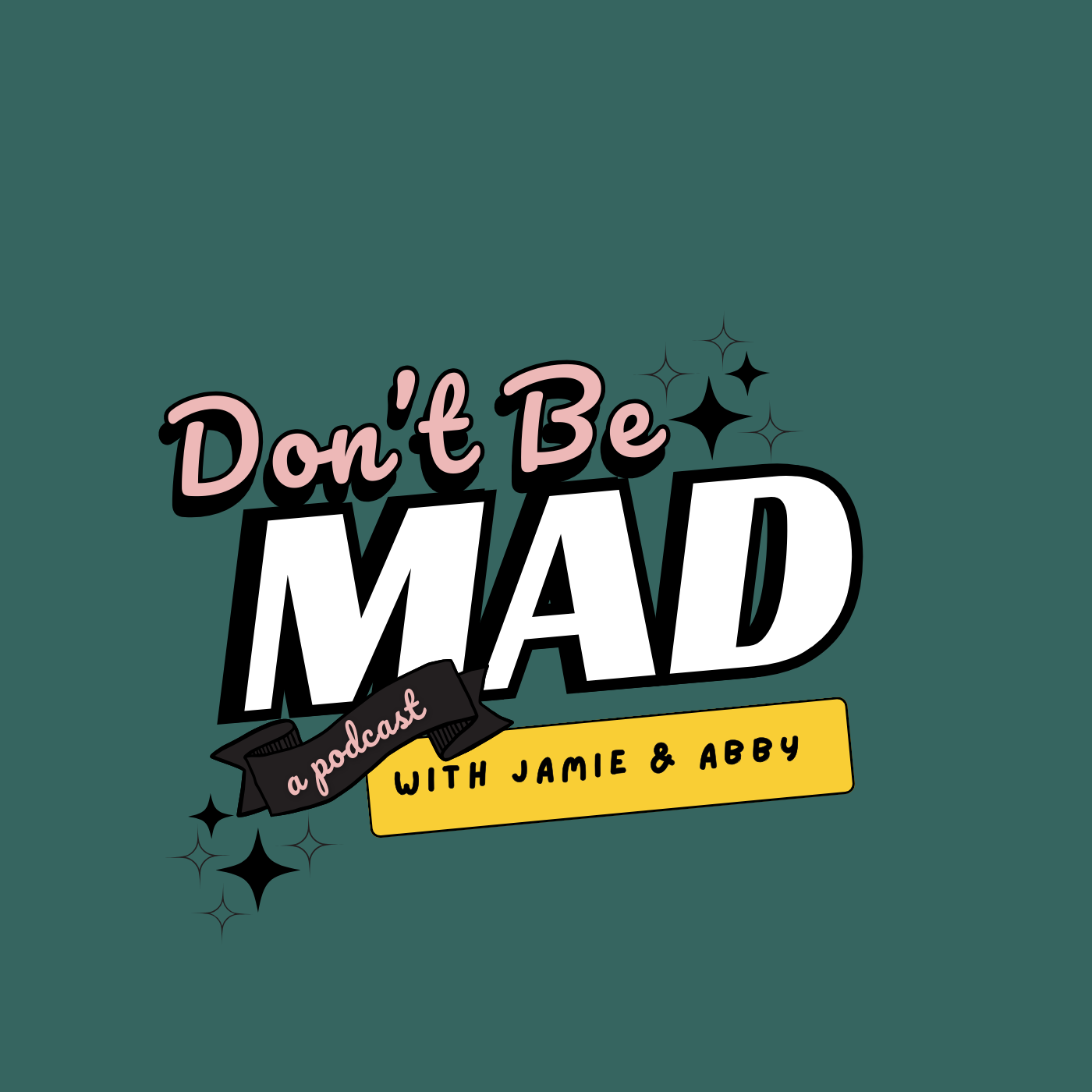
Don't Be Mad: A Podcast with Jamie and Abby!
Jamie Kilstein
The Back Row with Jamie Kilstein
Jamie Kilstein
Your Calvinist Podcast with Keith Foskey
Keith Foskey
BJJ Mental Models
Steve Kwan
Renewing Your Mind
Ligonier Ministries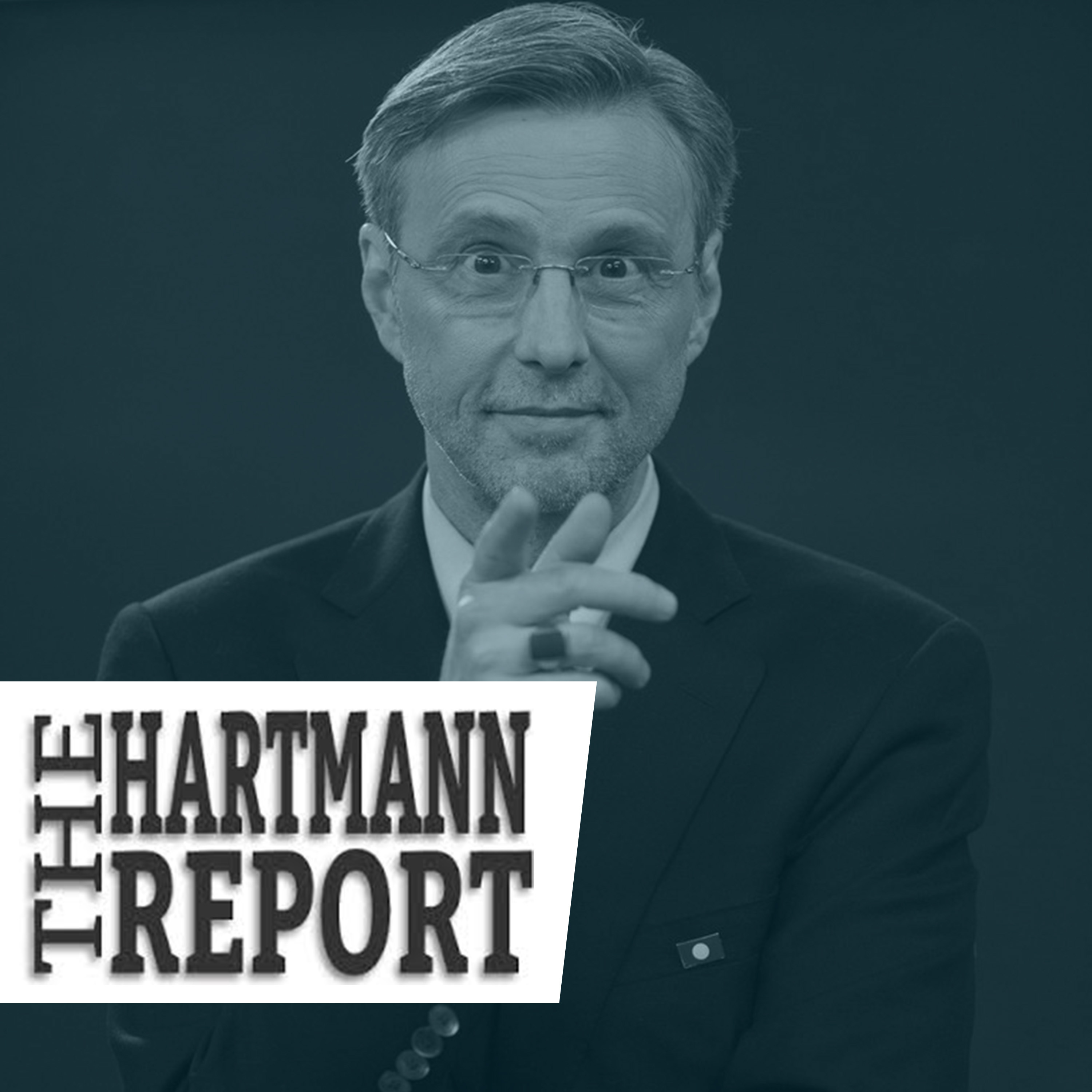
The Hartmann Report
Thom Hartmann
The Glenn Show
Glenn Loury
#RolandMartinUnfiltered
Roland S. Martin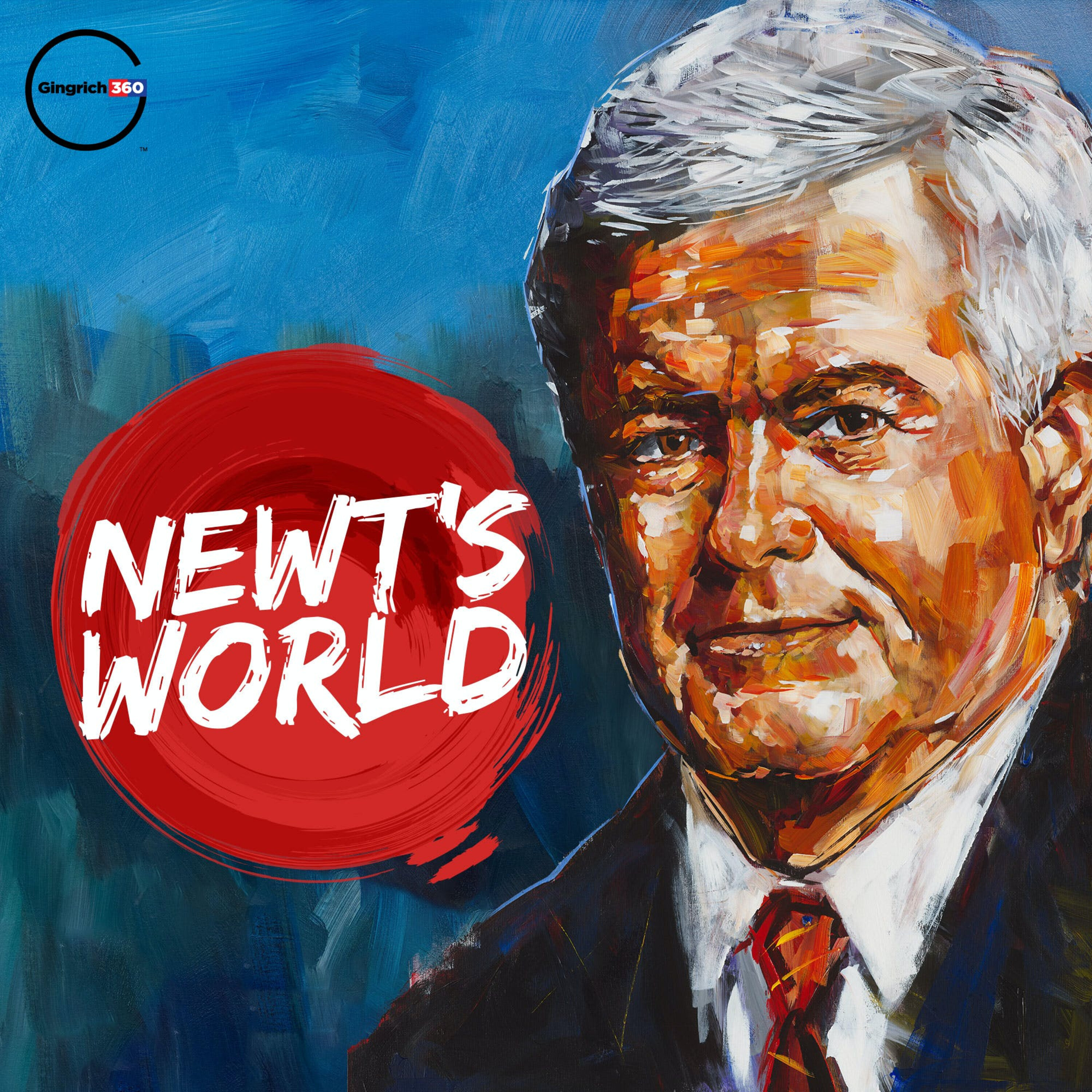
Newt's World
Gingrich 360
Ralph Nader Radio Hour
Ralph Nader
Bannon`s War Room
WarRoom.org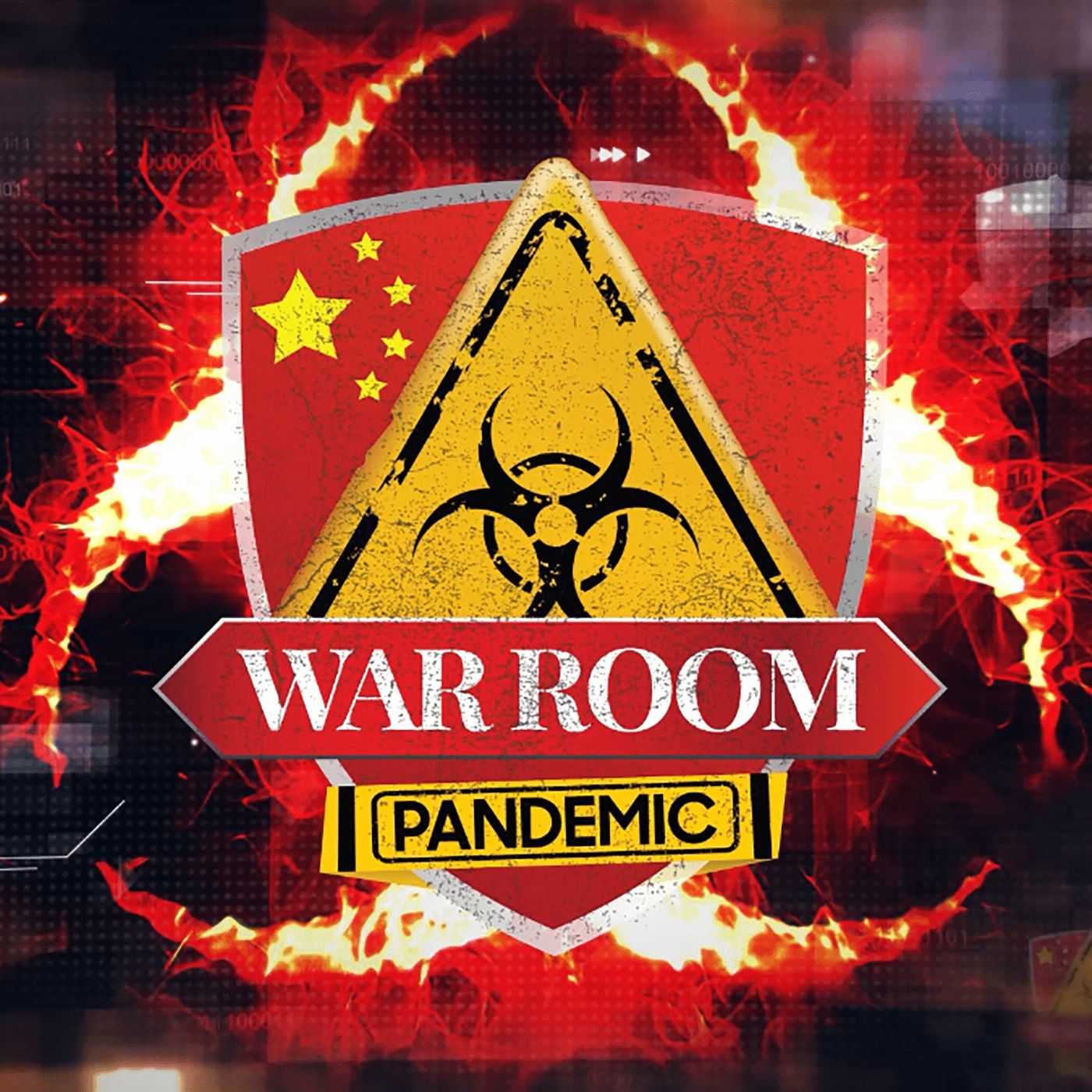
Bannon’s War Room
dan fleuette
The Young Turks
TYT Network
The Beat with Ari Melber
Ari Melber, MS NOW
The Damage Report with John Iadarola
TYT Network
The Majority Report with Sam Seder
Sam Seder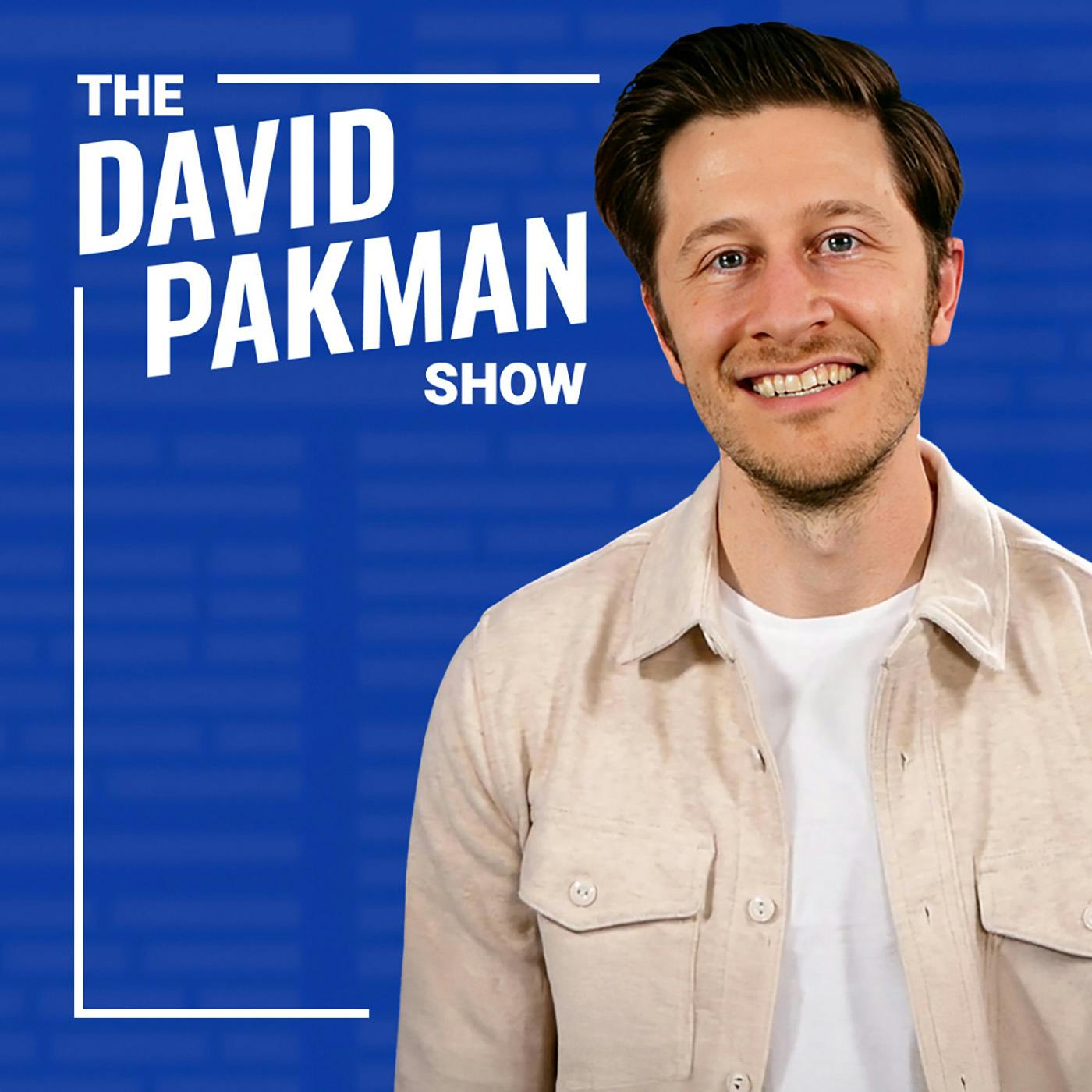
The David Pakman Show
David PakmanGet A Grip with Kendall Reusing
Kendall Reusing
Ultimately with R.C. Sproul
Ligonier Ministries
Grace to You: Radio Podcast
John MacArthur
The Briefing with Albert Mohler
R. Albert Mohler, Jr.
StarTalk Radio
Neil deGrasse Tyson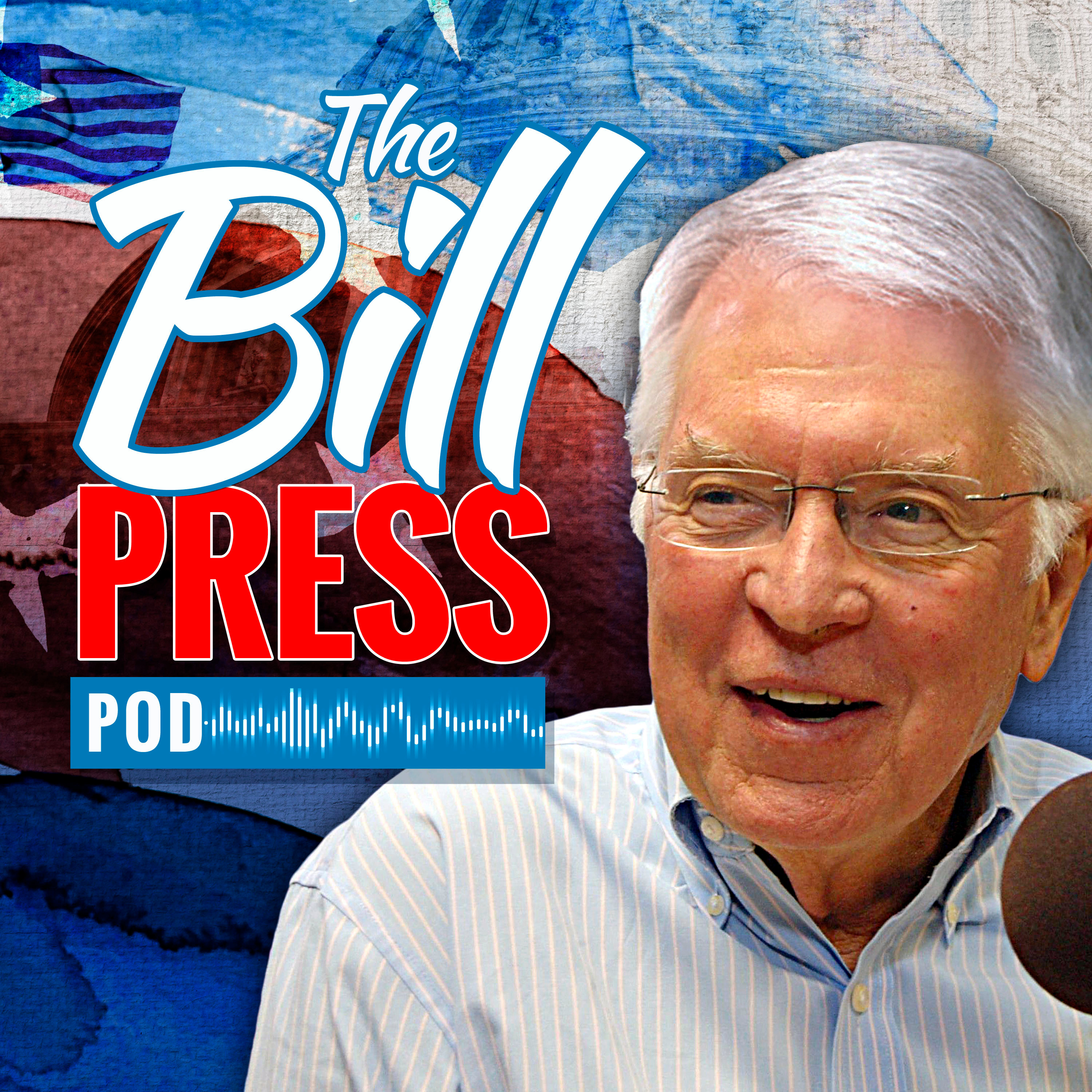
The Bill Press Pod
BP Pods
Ask Pastor John
Desiring God
The Weekly Show with Jon Stewart
Comedy Central
Ask Ligonier
Ligonier Ministries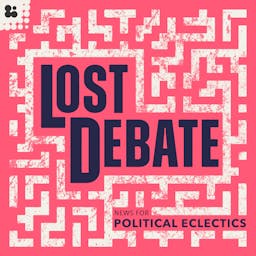
Lost Debate
The Branch
Coffee-Time-Again
Dale Hutchinson
5 Minutes in Church History with Stephen Nichols
Ligonier Ministries
The Ezra Klein Show
New York Times Opinion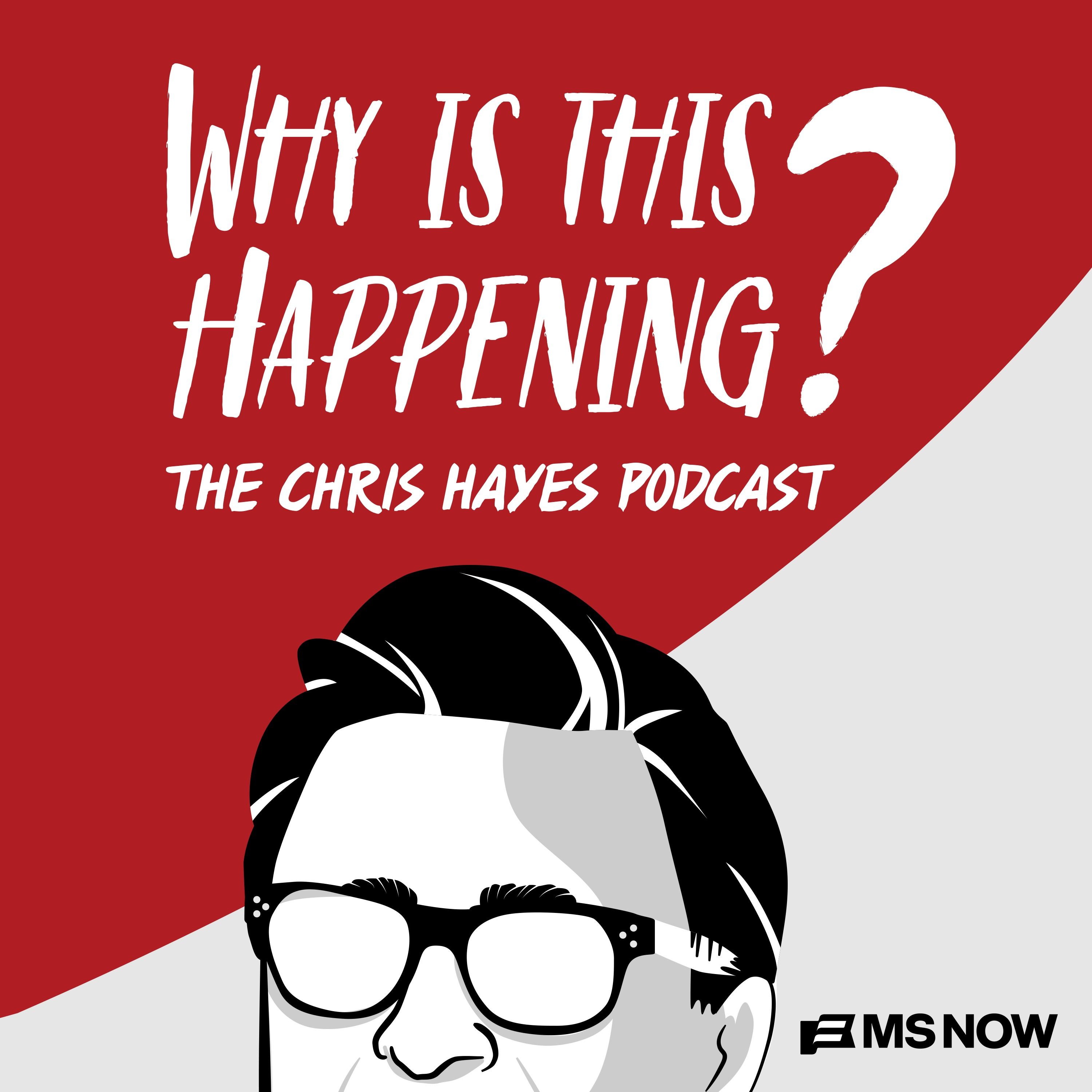
Why Is This Happening? The Chris Hayes Podcast
MS NOW, Chris Hayes
Changed By Grace
PodPoint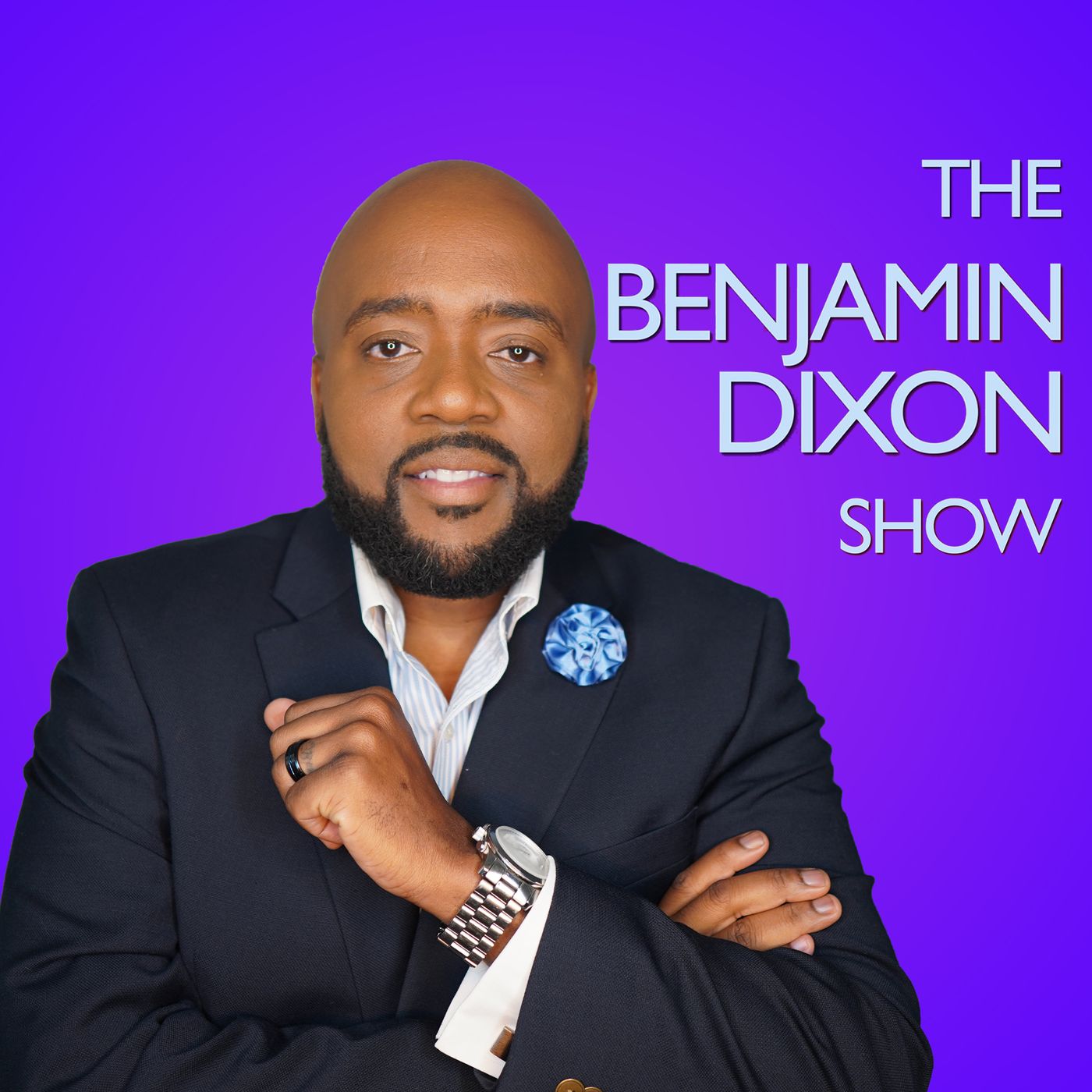
The Benjamin Dixon Show
The Benjamin Dixon Show
Thinking in Public with Albert Mohler
R. Albert Mohler, Jr.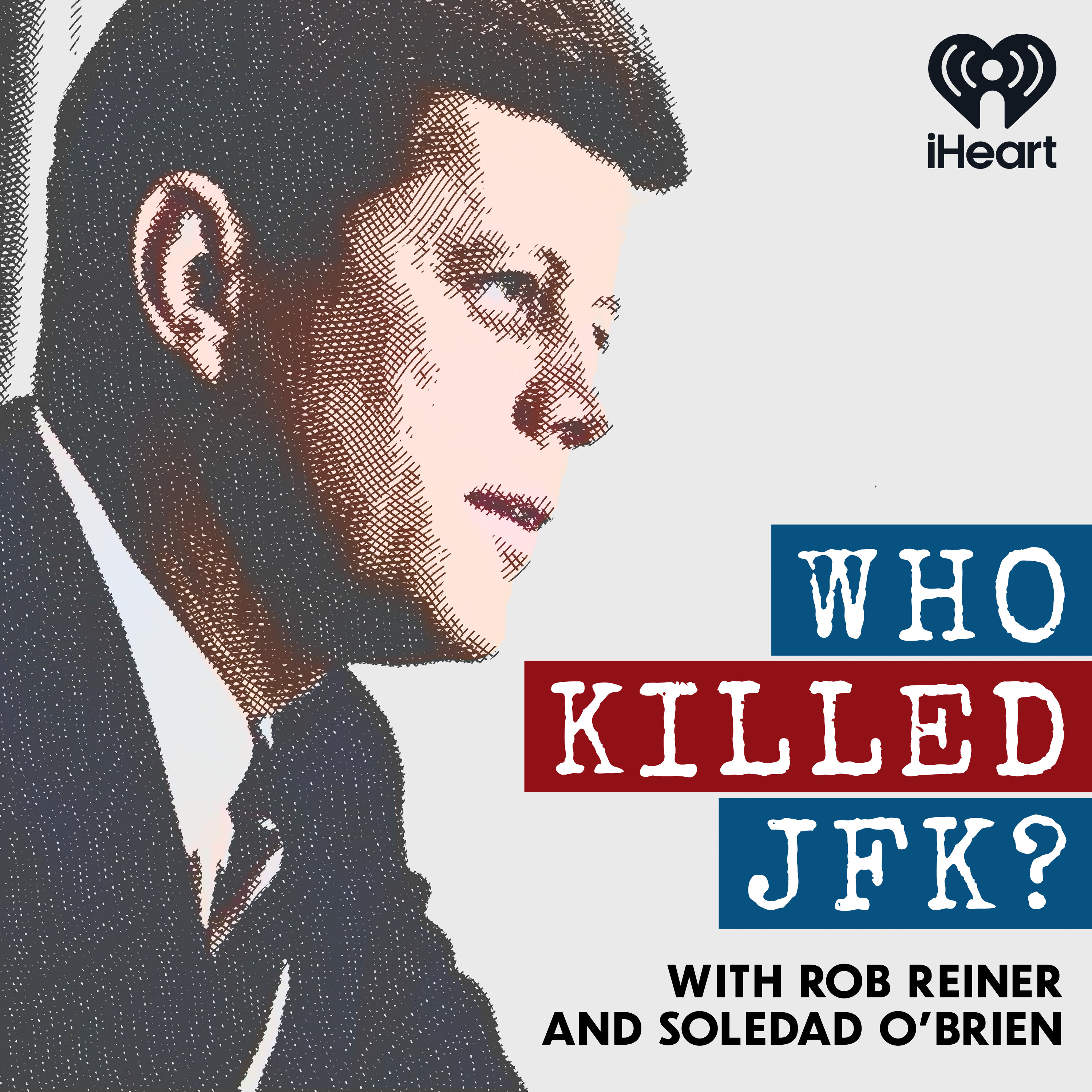
Who Killed JFK?
iHeartPodcastsThe MacArthur Center Podcast
The Master's Seminary
Jean Jacques Machado : No Gi Required
Jay Zeballos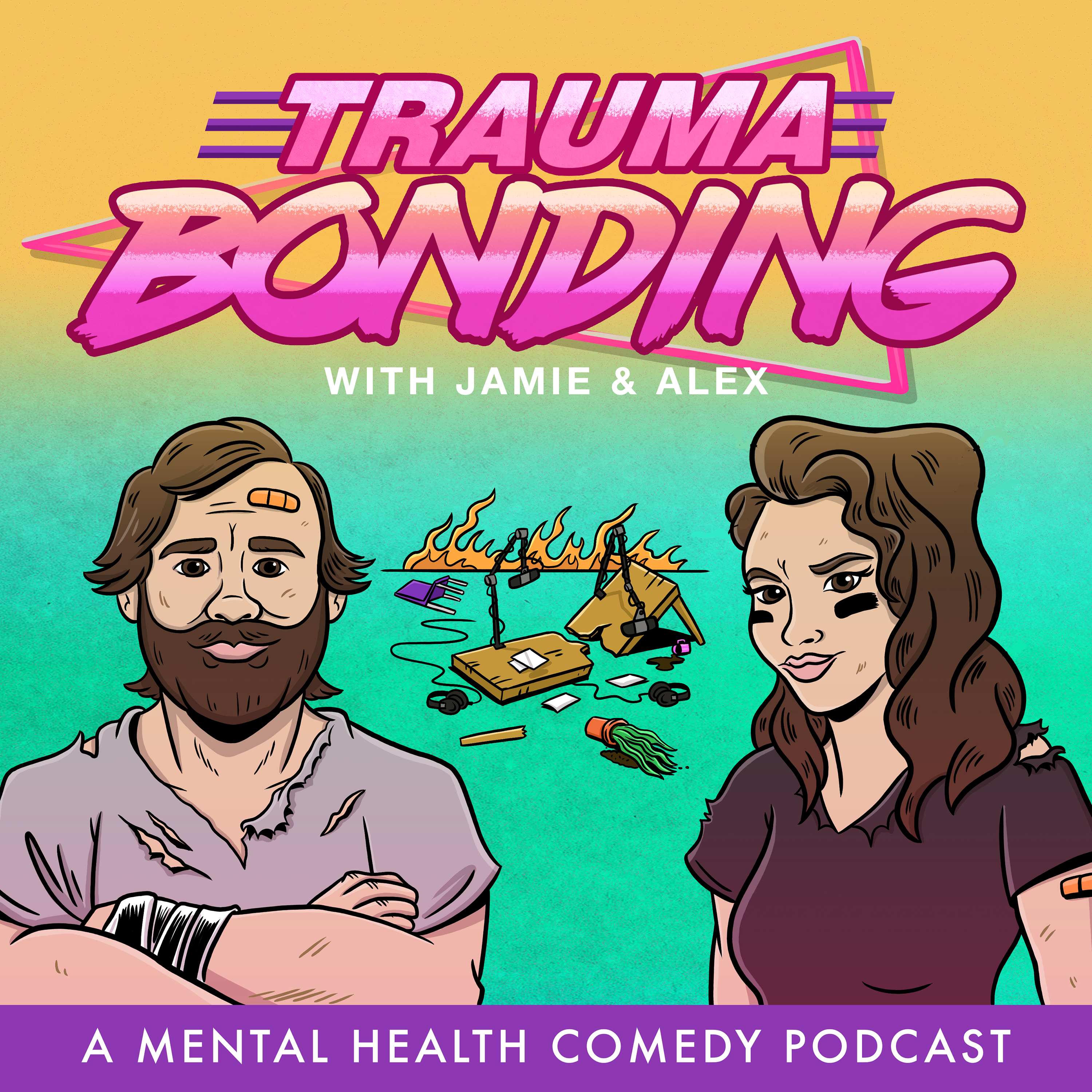
Trauma Bonding
Jamie Kilstein
This Day in History
The HISTORY Channel
The Ben Shapiro Show
The Daily Wire
The Sean Hannity Show
Sean Hannity
Breaking Points with Krystal and Saagar
iHeartPodcasts
The Kyle Kulinski Show
Kyle Kulinski